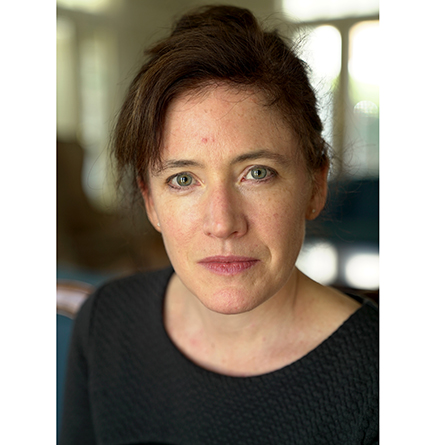
History professor awarded $237K research fellowship from The Andrew W. Mellon Foundation

Eileen Kane, associate professor of history and director of the Global Islamic Studies Program at Connecticut College, has been awarded a $237,000 New Directions Fellowship from The Andrew W. Mellon Foundation.
New Directions Fellowships are designed to support innovative interdisciplinary research by helping early-career humanities scholars pursue systematic training in a new field. Kane is the second Connecticut College faculty member to win this highly competitive fellowship; Associate Professor of History James Downs received the honor in 2015.
The award will enable Kane to train in Middle East Studies at Brown University, in order to investigate how large-scale migrations of both Muslims and Jews from Russia and the Soviet Union contributed to the formation of the modern Middle East. To undertake this work, she also plans to study Hebrew and Yiddish.
“Since joining Connecticut College in 2008, Professor Kane has distinguished herself as one of our most ambitious and accomplished humanities researchers,” said Dean of the Faculty Abigail Van Slyck. “With the New Directions Fellowship, Professor Kane is embarking on a bold new research agenda that will contribute to a growing body of scholarship and significantly enhance the College’s newly formed program in Global Islamic Studies.”
Kane’s first book, Russian Hajj: Empire and the Pilgrimage to Mecca, reconstructs a sprawling system developed by the Russian state in the 19th century to help Muslims make the pilgrimage to Mecca, which included subsidized rail tickets, lodging houses and specially outfitted “Hejaz steamships.” The work challenges the conventional wisdom among historians that Russia sought to isolate its large Muslim population from Muslim networks outside its borders.
To piece together the story, Kane used sources in Russian, Turkish, Ottoman, French, German and Tatar—“a tour de force of archival and linguistic skill” that few scholars could attempt, Van Slyck said.
Developed with support from several competitive grants, including a National Endowment for the Humanities fellowship, Russian Hajj was awarded the 2016 Marshall D. Shulman Book Prize by the Harriman Institute of Columbia University. The work also received Honorable Mention for the 2016 Reginald Zelnik Book Prize in History by the Institute of Slavic, East European and Eurasian Studies at the University of California, Berkeley, and Honorable Mention for the 2016 Heldt Prize from the Association for Women in Slavic Studies.
Having laid the groundwork for cross-regional Russian-Middle East studies with her first book, Kane will now build upon her discoveries about 19th century links by exploring connections between the Middle East and Eastern Europe, Russia and the Soviet Union in the 20th century, with a particular focus on displacement, migration, ethnic cleansing and state-building.
“The histories of Russia and the Middle East are deeply connected, yet this shared past is under-researched and its implications for the present are poorly understood,” Kane said. “A deeper understanding of the historical ties and overlaps between Russia and the Middle East will encourage scholars to consider more fully the meanings and parameters of their disciplines, recognize historical realities that disciplinary and national boundaries have tended to obscure, and reconnect the histories of Russia and the Middle East.”
Get to the 'why.' Learn more
March 24, 2017
